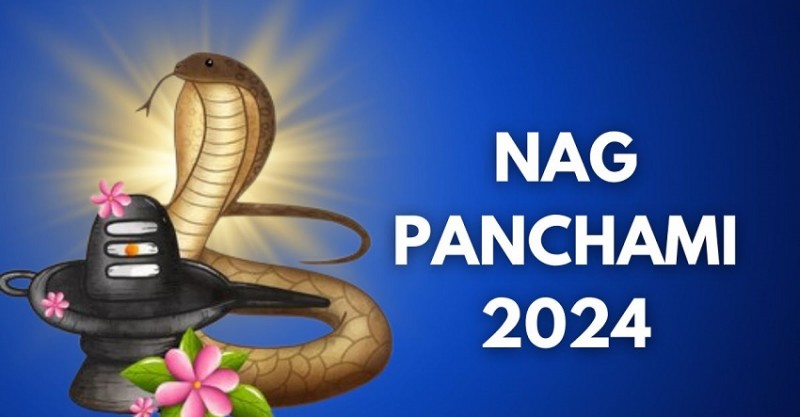
Nag Panchami, a significant Hindu festival, is dedicated to the worship of serpents (Naga) and is celebrated with devotion across India. In 2024, Nag Panchami falls on August 9. This festival holds a special place in the hearts of devotees, who observe various rituals to seek protection, prosperity, and spiritual well-being. Here’s everything you need to know about Nag Panchami 2024:
Date and Time
Nag Panchami 2024 Date: August 9, 2024
Tithi (Date) Timings:
Begins: 12:36 AM on August 9, 2024
Concludes: 03:13 AM on August 10, 2024
Shubh Muhurat
The Shubh Muhurat for performing the Nag Panchami Puja is crucial for ensuring the efficacy of the rituals. For 2024, the auspicious timing is as follows:
Start Time: 05:47 AM on August 9, 2024
End Time: 08:27 AM on August 9, 2024
Duration: 2 hours and 40 minutes
During this time, devotees should perform the Nag Panchami Puja to align with the most favorable planetary positions, which is believed to bring maximum spiritual benefits.
Significance of Nag Panchami
Nag Panchami is celebrated on the fifth day of the Shukla Paksha (waxing phase of the moon) in the month of Shravan (Sawan) according to the Hindu lunar calendar. This festival is marked by the worship of Nagas, the serpent deities, who are considered guardians of water sources and agricultural fertility. The observance of this festival is rooted in ancient Hindu mythology and is believed to bring blessings and protection from serpent-related ailments and misfortunes.
Rituals and Celebrations
Preparation:
Devotees clean their homes and prepare offerings for the Puja. Traditional preparations include making a special paste from sesame seeds and jaggery, which is used in the ritual.
Puja Rituals:
The Puja usually involves setting up an idol or image of a snake or serpent in a designated area of the home. Offerings such as milk, honey, and flowers are presented to the serpent deity.
Devotees also recite hymns and mantras dedicated to the Nagas, seeking their blessings for health, prosperity, and protection.
A traditional practice involves applying a turmeric and kumkum paste to images or idols of serpents, symbolizing respect and devotion.
Fasting:
Many devotees observe a fast on Nag Panchami, consuming only fruits or a light meal. This act of fasting is believed to purify the body and soul, making the devotee more receptive to divine blessings.
Community and Family Gatherings:
The festival is often celebrated with family and community gatherings. Special feasts and social activities are organized, reinforcing social bonds and celebrating the spirit of unity and devotion.
Mythological Significance
According to Hindu mythology, the Nag Panchami festival has deep-rooted significance. One popular legend narrates that Lord Krishna, during his childhood, protected his village from a serpent demon, Kaliya, by subduing him in the Yamuna River. This act of bravery and protection is commemorated through the worship of serpents during Nag Panchami.
Another story relates to the devotion of the Pandavas, particularly Arjuna, who is said to have performed Nag Panchami rituals to seek blessings for victory and prosperity.
Modern Observances
In contemporary times, the essence of Nag Panchami has been maintained through traditional rituals, though modern observances might include environmental conservation efforts, like protecting snake habitats and promoting awareness about the importance of serpents in maintaining ecological balance.
Nag Panchami 2024 is a time for reflection, devotion, and celebration. Observing the rituals with faith and reverence during the Shubh Muhurat is believed to invite prosperity and protection into one's life, reinforcing the timeless traditions of this auspicious festival.